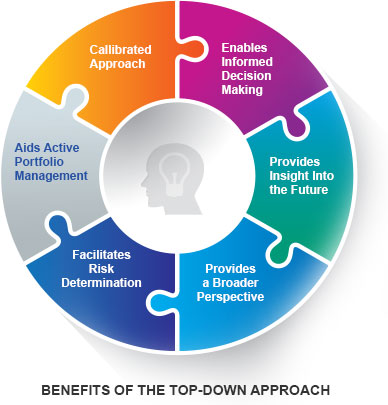
Time management and organizing skills are essential for maintaining a healthy work/life balance. This article will show you how to organize your time and set priorities. Prioritization will help you manage your time. Also, schedule your tasks. You should reward yourself for forming new habits. A new habit is much easier to form if you reward yourself after completing it. This will encourage and motivate you to stick with your new habits. It's a great habit to learn how to manage your time.
Time management
Setting and monitoring priorities is key to managing time for skill organization. Some tasks are more urgent than others while others have tighter deadlines. Sometimes, you need to complete task A before task B, for instance, in order to accomplish a long-term goal. Before starting any project, establish priorities to avoid becoming discouraged. A great time management tool is an online calendar that tracks your commitments. Numerous apps make it easy to manage and set your schedule.

Organizational organization
Time management skills are essential for organizational success. These skills include setting realistic deadlines and being disciplined. They also require you to know when tasks are urgent and when they can be put off. This knowledge allows you to prioritize your workload. Physical organization is another form of organizational skills. This requires organizing your workspace and using the appropriate filing systems. You must also manage the physical resources you have. A weekly cleaning session can be a good option for those who are not organized.
Mental organization
Mental organization also includes the ability prioritize assignments. It is crucial to be proactive in problem-solving and anticipating potential problems. Prioritizing can reduce stress for a team, especially when there is so much to do. Prioritizing doesn't mean that you have to check off three items on your to-do lists. It is important to learn how to manage your time efficiently and delegate tasks effectively. These are some ways to get the most out of your time.
Prioritization
To prioritise your tasks, you could use a Priority Matrix. This method is sometimes called the Effort vs. Influence method. Prioritizing your tasks helps you focus more effectively and make your work easier. It is important to prioritise skills that you have. This way, you will have time to work on your most important skills before you move onto the next one.
Documentation
Effective documentation can help you save time, prevent error, and retain information. A typical knowledge worker spends approximately two hours per days searching for information. Effective documentation collects must-know information and organizes it. It also reduces wasted time spent digging through email or downloaded files. Employees are more likely to be held accountable when there is clear documentation. It's a win-win for your business and your team. If you want to create an effective documentation system, start by identifying your most common skill sets.

Team management
Employee engagement and productivity can be improved by effective team management. This increased productivity leads to economic benefits and business growth. Team management involves bringing together a diverse group of people, while managing their individual personalities and skill sets. Keep the company's overall goals in mind. In the following paragraphs we'll explore some of the key elements that go into effective team management. We'll also be discussing the different skills required for managing a group.
FAQ
What are the most important management skills?
Management skills are essential for any business owner, whether they're running a small local store or an international corporation. They include the ability to manage people, finances, resources, time, and space, as well as other factors.
You will need management skills to set goals and objectives, plan strategies, motivate employees, resolve problems, create policies and procedures, and manage change.
You can see that there are many managerial duties.
What is TQM and how can it help you?
The industrial revolution led to the birth and growth of the quality movement. Manufacturing companies realized they couldn't compete solely on price. If they wanted to stay competitive, they needed to improve their quality and efficiency.
Management developed Total Quality Management to address the need for improvement. It focused on all aspects of an organisation's performance. It included continuous improvement, employee involvement and customer satisfaction.
How to effectively manage employees
Effectively managing employees requires that you ensure their happiness and productivity.
This includes setting clear expectations for their behavior and tracking their performance.
To do this successfully, managers need to set clear goals for themselves and for their teams.
They need to communicate clearly and openly with staff members. They should also ensure that they both reward high performers and discipline those who are not performing to their standards.
They also need to keep records of their team's activities. These include:
-
What was achieved?
-
How much work did you put in?
-
Who did it?
-
Was it done?
-
Why was it done?
This information can be used to monitor performance and evaluate results.
How can we create a culture of success in our company?
A positive company culture creates a sense of belonging and respect in its people.
It is based on three principles:
-
Everyone has something valuable to contribute
-
Fair treatment of people is the goal
-
It is possible to have mutual respect between groups and individuals
These values are evident in the way that people act. For example, they will treat others with courtesy and consideration.
They will be respectful of the opinions of other people.
They will also encourage others to share their ideas and feelings.
The company culture promotes collaboration and open communication.
People feel free to express their views openly without fear of reprisal.
They understand that mistakes can be forgiven as long as they're dealt with honestly.
Finally, the company culture promotes honesty and integrity.
Everybody knows they have to tell the truth.
Everyone understands there are rules that they must follow.
Nobody expects to be treated differently or given favors.
What does Six Sigma mean?
Six Sigma uses statistical analysis for problems to be found, measured, analyzed root causes, corrected, and learned from.
The first step is identifying the problem.
The data is then analyzed and collected to identify trends.
The problem can then be fixed by taking corrective measures.
Finally, data is reanalyzed to determine whether the problem has been eliminated.
This cycle continues until there is a solution.
What does it mean to say "project management"
Management is the act of managing activities in order to complete a project.
Our services include the definition of the scope, identifying requirements, preparing a budget, organizing project teams, scheduling work, monitoring progress and evaluating the results before closing the project.
Statistics
- As of 2020, personal bankers or tellers make an average of $32,620 per year, according to the BLS. (wgu.edu)
- The average salary for financial advisors in 2021 is around $60,000 per year, with the top 10% of the profession making more than $111,000 per year. (wgu.edu)
- The profession is expected to grow 7% by 2028, a bit faster than the national average. (wgu.edu)
- This field is expected to grow about 7% by 2028, a bit faster than the national average for job growth. (wgu.edu)
- 100% of the courses are offered online, and no campus visits are required — a big time-saver for you. (online.uc.edu)
External Links
How To
How can you apply 5S to your office?
To make your workplace more efficient, organize everything. A tidy desk, a clean room and a well-organized workspace will help everyone be more productive. The five "S"'s (Sort. Shine. Clean. Separate. And Store) help to maximize space and ensure efficiency. This session will take you through each step and show you how they can fit into any environment.
-
Sort. You can get rid of all papers and clutter, so you don’t waste time looking for what you need. You need to put your things where you use them the most. It is a good idea to keep things near where you are most likely to refer to it. You should also consider whether you really need to keep something around -- if it doesn't serve a useful function, get rid of it!
-
Shine. Don't leave anything that could damage or cause harm to others. Find a safe way to store pens that you don't want anyone else to see. It might mean investing in a pen holder, which is a great investment because you won't lose pens anymore.
-
Sweep. Clean off surfaces regularly to prevent dirt from building up on your furniture and other items. You might want to purchase dusting equipment in order to make sure that every surface is as clean as possible. To keep your workstation tidy, you can set aside an area for dusting and sweeping.
-
Separate. It will help you save time and make it easier to dispose of your trash. To make it easy to dispose of the trash, you will find them strategically placed around the office. You can take advantage of this location and place trash bags near each bin to make it easy to find what you are looking for.